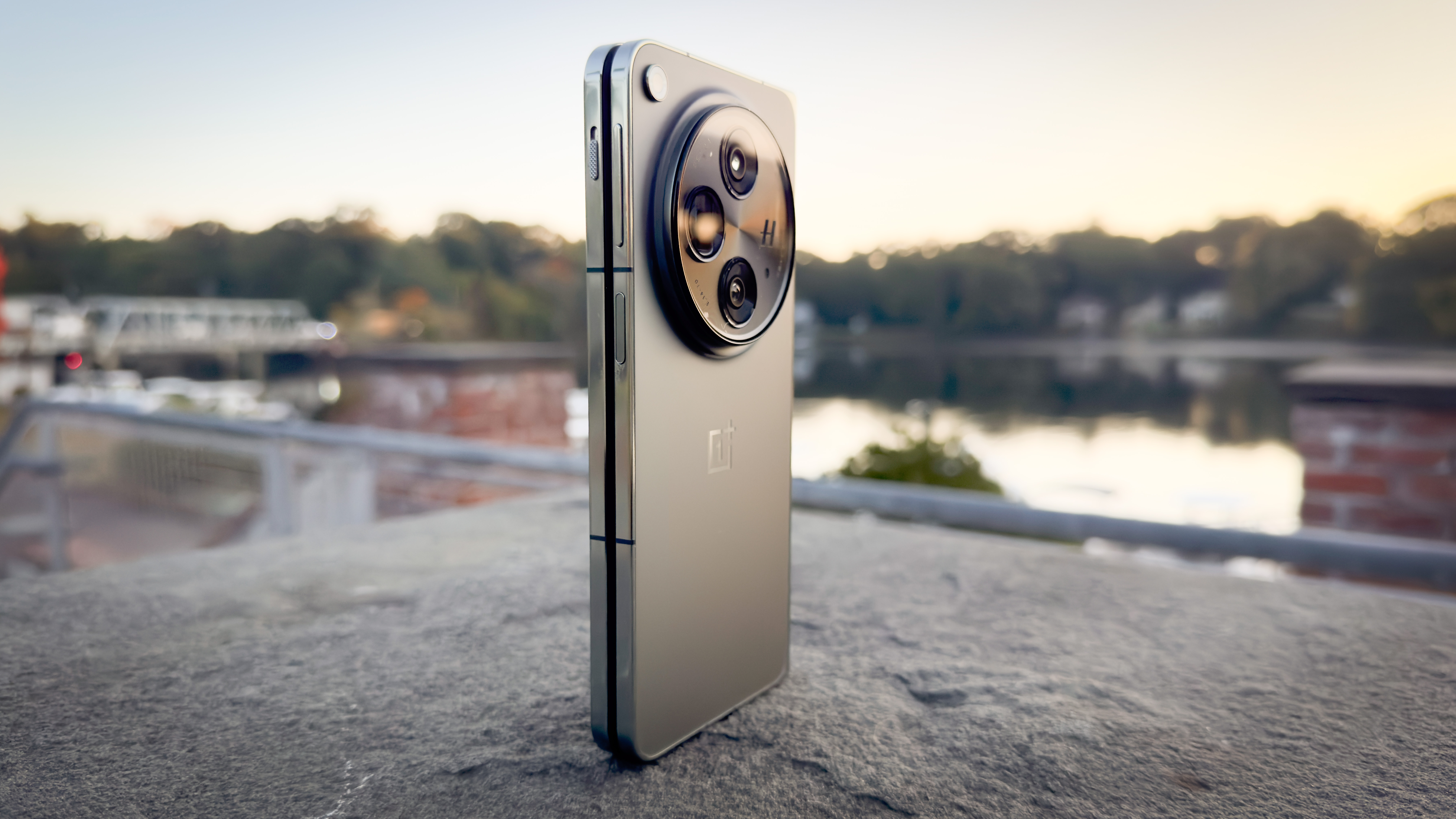
The OnePlus Open was well-received on its release in October 2023 (we described it as “the only foldable phone that doesn't compromise” in our OnePlus Open review), so it was more than a little disappointing to hear that a much-rumored OnePlus Open 2 won’t be hitting shelves any time soon.
In a statement posted to the OnePlus Community forum in February, OnePlus announced that it had “made the decision not to release a foldable” in 2025, noting that Oppo – OnePlus’ sister company – is now “taking the lead in the foldable segment” with the Oppo Find N5 (which, incidentally, is still not available outside of China at the time of writing).
"This is not a step back, it’s a recalibration," OnePlus explained at the time – but what does that mean, exactly? We asked the company to elaborate on its reasoning during a recent sponsored visit to OnePlus HQ in Guangdong, China. Rudolf Xu, Senior Product Marketing Manager for OnePlus, had this to say:
“In the foldable industry, the common challenge for every smartphone maker is [working out] how to make the phone slimmer, lighter, and the crease less visible, while also, at the same time, not sacrificing other key specs when you are trying to solve those challenges,” Xu told TechRadar.
“At OnePlus, we want to bring the best possible experience [to the user]. If you look back at the OnePlus Open, even up until today, it still has very competitive specs, honestly. It’s more about a timing situation. We are thinking about how we want to solve those [aforementioned] challenges in a better way. That’s why we decided not to launch a foldable this year.”
The OnePlus Open, even up until today, still has very competitive specs.
Rudolf Xu, OnePlus
It’s clear, then, that a desire to bring meaningful (i.e. not iterative) innovation to the foldable market lies at the heart of OnePlus’ decision to delay its foldable plans – but there are economic factors at play here, too.
Xu explained: “There's also a figure I can share [that will help justify our decision]. If you check the latest Counterpoint research, foldable shipments increased by 2.9% year-over-year in 2024, which was actually lower than expected. The foldable market is increasing, for sure, but it will still take time for foldables to become mainstream and to really, let's say, cross the chasm and become a product for the majority [of people].”
Get daily insight, inspiration and deals in your inbox
Sign up for breaking news, reviews, opinion, top tech deals, and more.

In other words, the foldable market simply isn’t yet big enough to make regular product launches economically viable – at least for OnePlus.
Samsung continues to release book- and flip-style foldables on an annual basis (the Galaxy Z Fold 7 and Galaxy Z Flip 7 are next on the agenda), but it’s true that the South Korean giant has more resources at its disposal, not to mention a much larger user base.
The good news is that the OnePlus Open 2 isn’t just a pipe dream. OnePlus confirmed in its aforementioned statement that it’s not withdrawing from the foldable market entirely – “our decision to pause on foldables for this generation does not signify a departure from the category,” the brand explained. And given that we’re not expecting a new model in 2025, it’s safe to assume that the OnePlus Open 2, when it does eventually arrive, won’t just be a rebadged Oppo Find N5 (though we are huge fans of that particular device).
What do you think about OnePlus' decision, and the state of foldable phones in 2025 more generally? Let us know in the comments.
You might also like

Axel is TechRadar's UK-based Phones Editor, reporting on everything from the latest Apple developments to newest AI breakthroughs as part of the site's Mobile Computing vertical. Having previously written for publications including Esquire and FourFourTwo, Axel is well-versed in the applications of technology beyond the desktop, and his coverage extends from general reporting and analysis to in-depth interviews and opinion. Axel studied for a degree in English Literature at the University of Warwick before joining TechRadar in 2020, where he then earned an NCTJ qualification as part of the company’s inaugural digital training scheme.
You must confirm your public display name before commenting
Please logout and then login again, you will then be prompted to enter your display name.